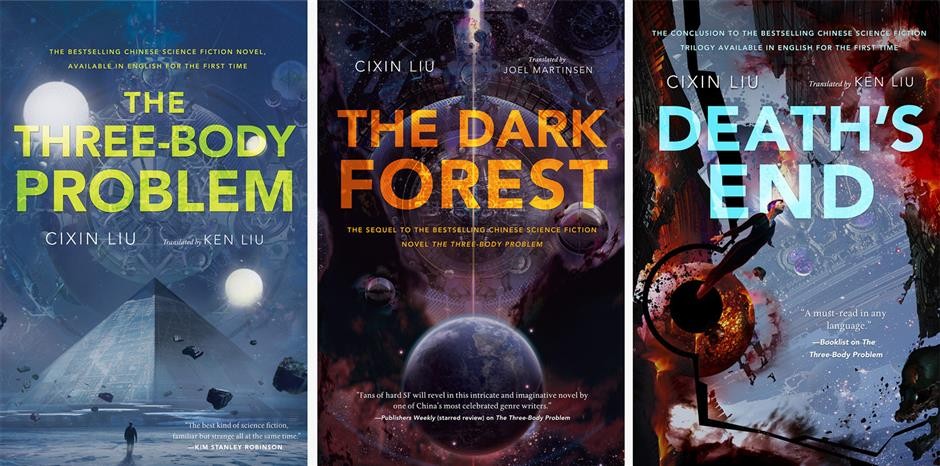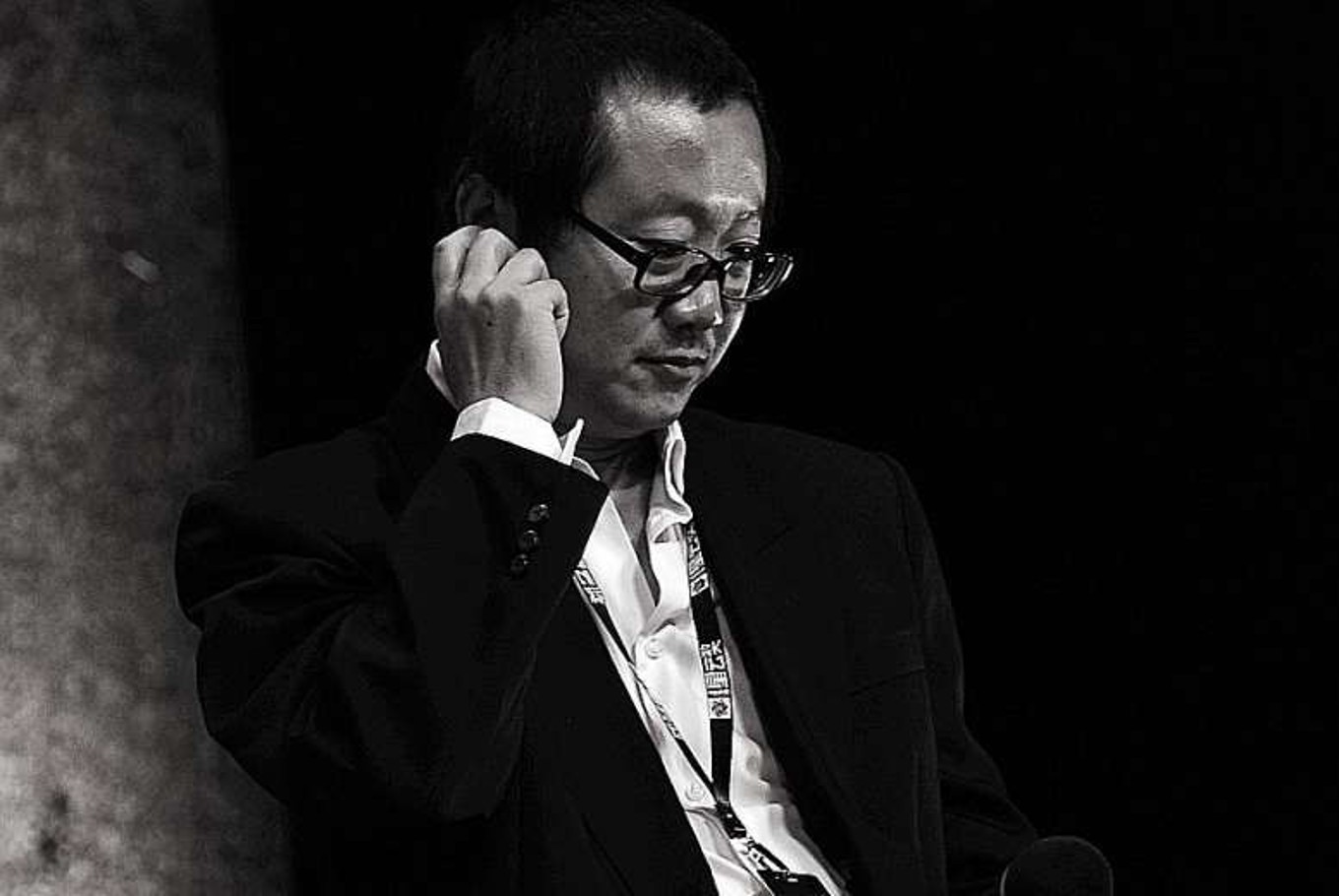Popular Reads
Top Results
Can't find what you're looking for?
View all search resultsPopular Reads
Top Results
Can't find what you're looking for?
View all search resultsChinese sci-fi novelist first Asian to win prestigious book award
Chinese sci-fi title The Three-Body Problem was first serialized in Science Fiction World magazine in 2006 and then published as a book in 2008. It was eventually translated into English and it became a literary phenomenon, winning the prestigious Hugo Award for Best Novel in 2015.
Change text size
Gift Premium Articles
to Anyone
Chinese sci-fi title The Three-Body Problem was first serialized in Science Fiction World magazine in 2006 and then published as a book in 2008. It was eventually translated into English and it became a literary phenomenon, winning the prestigious Hugo Award for Best Novel in 2015.
Even former US President Barack Obama is a fan. He told The New York Times while still in office: “The scope of it was immense. So that was fun to read, partly because my day-to-day problems with Congress seem fairly petty – not something to worry about.”
Its author, Liu Cixin, 53, is as surprised as anyone by its success. He says in Mandarin over the telephone from Beijing: “Sci-fi novels usually have a shorter shelf-life because they tend to be overtaken by scientific developments.
It’s been more than a decade since it was first published and for it to continue to have such an impact is something my publishers and I never expected.”
In The Three-Body Problem (Tor Books, 2007), readers first encounter the Trisolaran world, an unstable stellar system with three suns. The sequel, The Dark Forest (Tor Books), published in English in 2015, details how Earth deals with a Trisolaran invasion coming in 400 years’ time.
In the concluding installment, Death’s End (Tor Books), published in English last year, the two civilizations coexist peacefully at first, but before long, humanity is once again faced with the threat of annihilation. Death’s End is up for Best Novel at the 2017 Hugo Awards, which will be presented in August.
Collectively, the trilogy is known as Remembrance Of Earth’s Past (Tor Books).
Liu adds wryly, though, that the attention lavished on The Three-Body Problem has not been a tide that lifts all boats.
For example, with regard to his translated book of short stories, The Wandering Earth (Beijing Guomi Digital Technology Co, 2012) he says: “There’s been not much impact, it’s like throwing a stone into a pond.”
Still, he can be justifiably proud of what he has achieved so far.
In 2015, Liu became the first Asian, and The Three-Body Problem the first translated novel, to win the Hugo for Best Novel. (At home, he is a nine-time winner of the Galaxy Award, China’s top literary sci-fi award.)
He says: “I’m an author who writes sci-fi and the Hugo is the highest honor for the genre. It’s like the Nobel prize of the sci-fi world.”
 In the concluding instalment, Death’s End (Tor Books), published in English last year, the two civilizations coexist peacefully at first, but before long, humanity is once again faced with the threat of annihilation. Death’s End is up for Best Novel at the 2017 Hugo Awards, which will be presented in August.
(The Star/File)
In the concluding instalment, Death’s End (Tor Books), published in English last year, the two civilizations coexist peacefully at first, but before long, humanity is once again faced with the threat of annihilation. Death’s End is up for Best Novel at the 2017 Hugo Awards, which will be presented in August.
(The Star/File)
Read also: William Wongso’s book wins at 2017 Gourmand World Cookbook Awards
With Hao Jingfang’s Folding Beijing (Uncanny Magazine, 2015) winning the Hugo for Best Novelette the following year in 2016, Chinese sci-fi certainly seems to be having its moment in the spotlight.
This is something that Liu has given some thought to.
He points out that sci-fi literature has an unusual characteristic in that it can prosper in a strong and rapidly developing country. It has been a bellwether of progress since its birth in the West two centuries ago, which was when the British empire was on the rise.
It later took off in Europe, and then the center of sci-fi shifted to the United States after World War II with the decline of Europe and the ascent of America.
As for the reason for the greater interest in Chinese sci-fi from the West, Liu, who graduated from the North China University of Water Resources and Electric Power in 1988, says: “China is in a period of rapid modernization and its national power is growing. This increases the visibility of its culture, which attracts outside attention.”
While he is glad of the opportunity to reach a wider audience, he also says firmly: “I write for Chinese readers and there are enough of them, so I won’t change what I do in order to appeal to a wider audience.”
The Three-Body Problem is partly set during China’s Cultural Revolution (1966-1976) as astrophysicist Ye Wenjie escapes persecution with her recruitment into a top-secret military project.
Liu himself was sent to his ancestral home in Luoshan county, Henan, due to the violent upheavals of the Cultural Revolution. He is not interested, though, in using sci-fi to reflect reality in the vein of, say, Aldous Huxley’s Brave New World (1931).
He says: “This is the only time that the Cultural Revolution appears in my work, it’s merely a requirement of the setting. What I’m interested in is sci-fi for its own sake. I’m not interested in sci-fi as a tool to critique reality.”
A Chinese film adaptation starring the likes of Feng Shaofeng (from the hit time-traveling period drama Palace, 2011) and Zhang Jingchu (Aftershock, 2010) is slated to be released this year.
Liu’s expectations are measured, though.
“It’s the first time China is making a big-budget sci-fi flick and you can’t come up with a classic right off the bat – America has been making them for a hundred years and has only a handful of classics.”
Meanwhile, he will continue to turn to the skies for inspiration for his writing.
He says: “We look up at the sky every night and see this vastness, this great cosmos, it’s impossible not to be intrigued. You don’t need any reason for it. It would be strange if you had no interest in space. That goes against the fundamental nature of human beings.”
This article appeared on The Straits Times newspaper website, which is a member of Asia News Network and a media partner of The Jakarta Post











